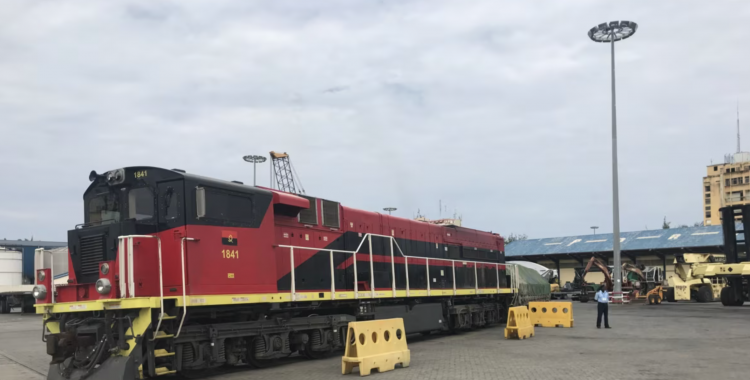On the eve of the arrival of North American President Joe Biden in Angola, a country where the Democratic leader will be between December 2nd and 4th, Lusa heard experts on African affairs and, while everyone agrees that the United States' priority is not the Africa, everyone mentions that there are exceptions that weigh on the consideration of the strategic geopolitical interests of the USA on the African continent, such as the maintenance of investments in the Lobito Corridor, a railway infrastructure that connects Angola to the mineral areas of the Democratic Republic of Congo (RDCongo) and Zambia.
"This visit is related to a large investment that is being made in the Lobito Corridor", said Cátia Batista, professor at Nova SBE and director of the NOVAFRICA center, adding that "there is naturally a great economic interest that has to do with natural resources".
Mentioning that this trip comes in a context in which the United States was expelled from Niger and in which there is a very serious humanitarian crisis in Sudan, Cátia Batista, who is one of the members of the recently created National Council for Migration and Asylum, said that it is in this scenario that the geostrategic interest of this trip to Angola appears.
"What's at stake here is this enormous, strategic investment and access to natural resources by the United States in Africa," she concluded.
On the other hand, China's manifest interest and realignment in Africa are also variables that need to be considered when we talk about the United States' interest in the African continent, said Cátia Batista, adding that "China is investing more and more in Africa, in a more influential way and with a new tendency to focus on the training of African leaders".
Speaking to the Lusa agency, Fernando Jorge Cardoso, guest professor at the Autonomous University of Lisbon and specialist in African affairs, also referred to the enormous geostrategic importance of the Lobito Corridor as one of the reasons, "regardless of the symbolic part of the trip", which leads him to believe that American policy in Africa will remain "as a policy of support for American multinationals that are operating in African countries. This with Trump or without Trump."
For Fernando Cardoso, the importance of this infrastructure has to do with guaranteeing an outflow of resources to the Atlantic from a country that is deeply economically linked to the United States, through oil exploration.
On the other hand, Fernando Cardoso pointed out the political component of this trip, which he associates with the Chinese.
"It is a move that is of interest to American multinationals, for the policy of easy access to resources and also a policy of opposition to the main rival of the United States", he concluded.
With the same line of thought, Marlon Francisco, from Economics for Policy at Nova SBE, said that Joe Biden's administration has made an effort to present Africa as a valuable partner and "one of the positive examples is the investment in the Lobito Corridor".
Recognizing that there are many issues that need to be evaluated, Marlon Francisco, who is also a consulting economist at the World Bank, said he believes that "Donald Trump's re-election in 2024 could bring significant uncertainty to the African continent, especially in areas of trade and foreign aid, although the need to compete with China may lead to the continuation of some strategic partnerships".
For Marlon Francisco, "Trump's reelection will likely mean a pragmatic approach and more focused on direct interests and less on humanitarian support or long-term partnership."







